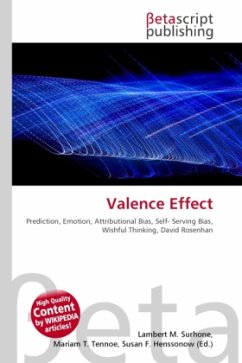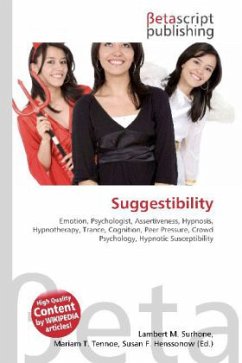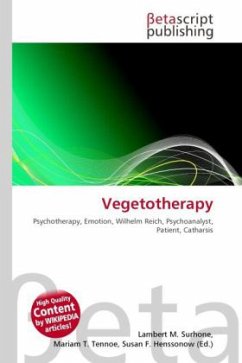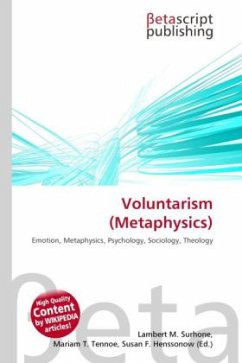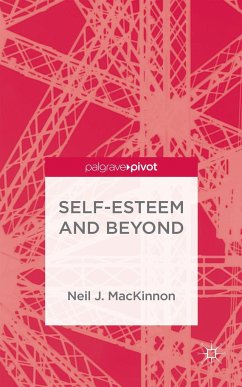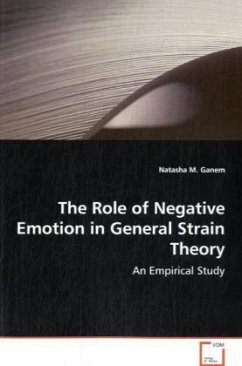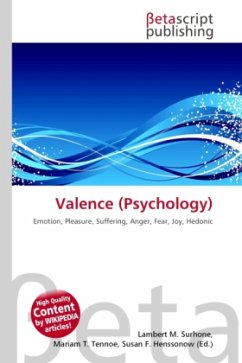
Valence (Psychology)
Versandkostenfrei!
Versandfertig in 6-10 Tagen
19,99 €
inkl. MwSt.

PAYBACK Punkte
10 °P sammeln!
High Quality Content by WIKIPEDIA articles! Valence, as used in psychology, especially in discussing emotions, means the intrinsic attractiveness (positive valence) or aversiveness (negative valence) of an event, object, or situation. However, the term is also used to characterize and categorize specific emotions. For example, the emotions popularly referred to as "negative", such as anger and fear, have "negative valence". Joy has "positive valence". Positively valenced emotions are evoked by positively valenced events, objects, or situations. The term is also used about the hedonic tone of f...
High Quality Content by WIKIPEDIA articles! Valence, as used in psychology, especially in discussing emotions, means the intrinsic attractiveness (positive valence) or aversiveness (negative valence) of an event, object, or situation. However, the term is also used to characterize and categorize specific emotions. For example, the emotions popularly referred to as "negative", such as anger and fear, have "negative valence". Joy has "positive valence". Positively valenced emotions are evoked by positively valenced events, objects, or situations. The term is also used about the hedonic tone of feelings, affect, certain behaviors (for example, approach and avoidance), goal-attainment or -non-attainment, and conformity with or violation of norms. Ambivalence can be viewed as conflict between positive and negative valence-carriers.



